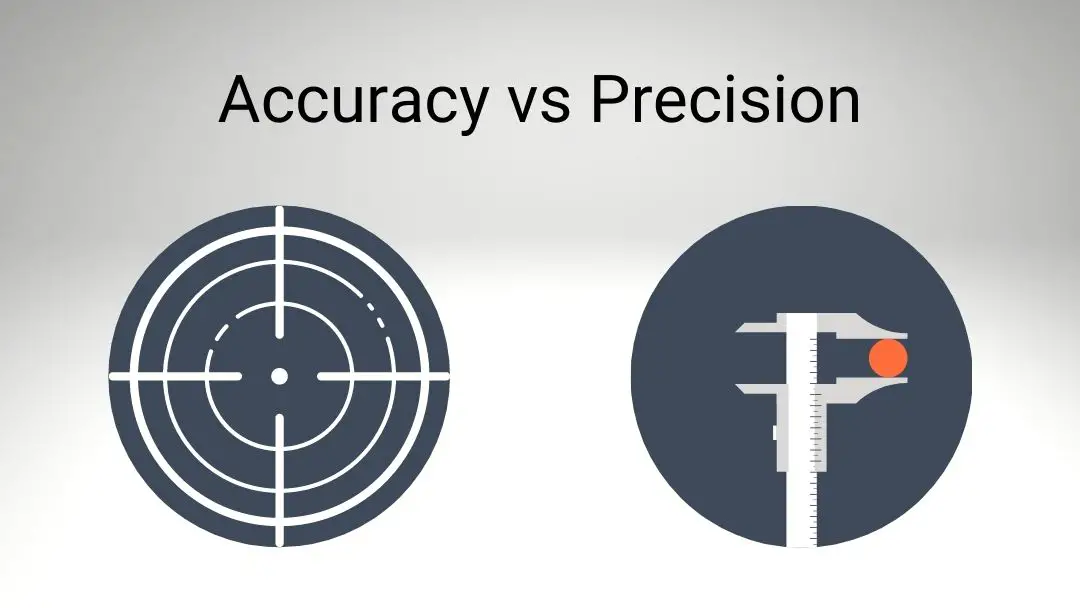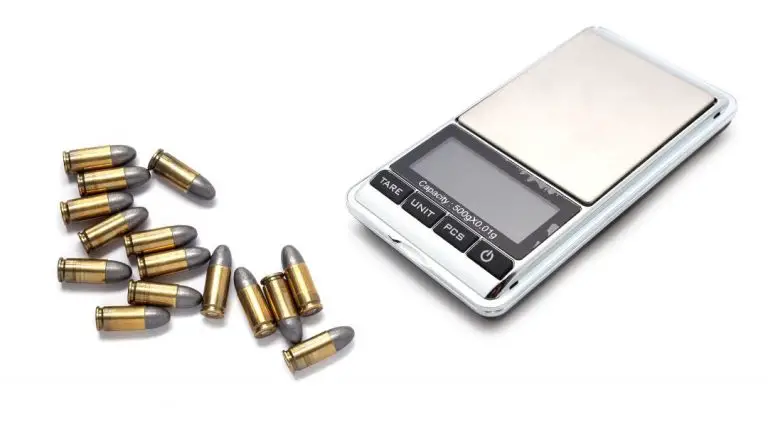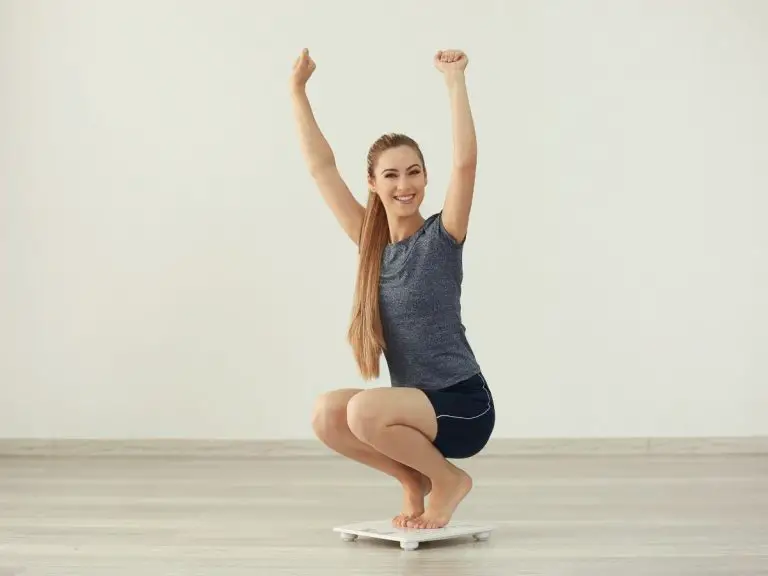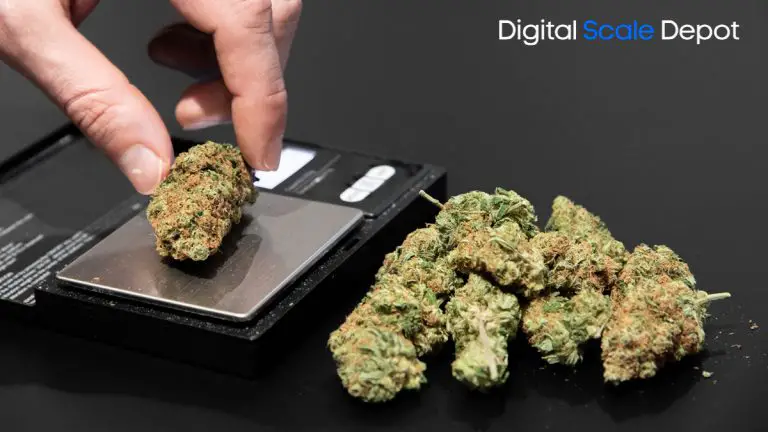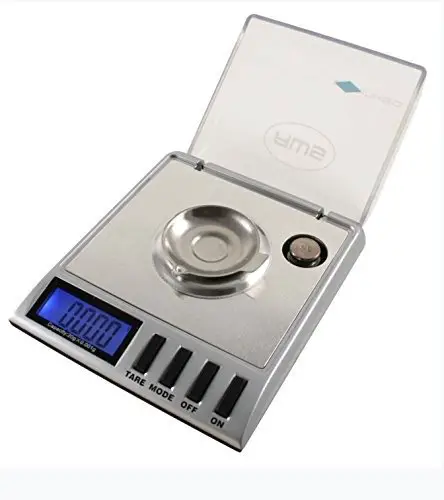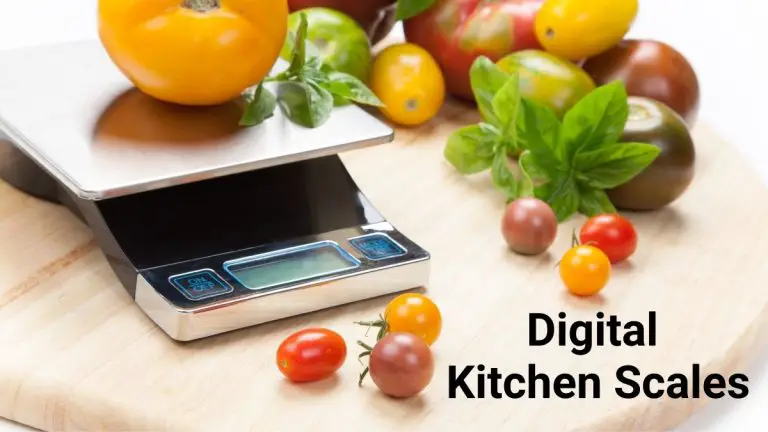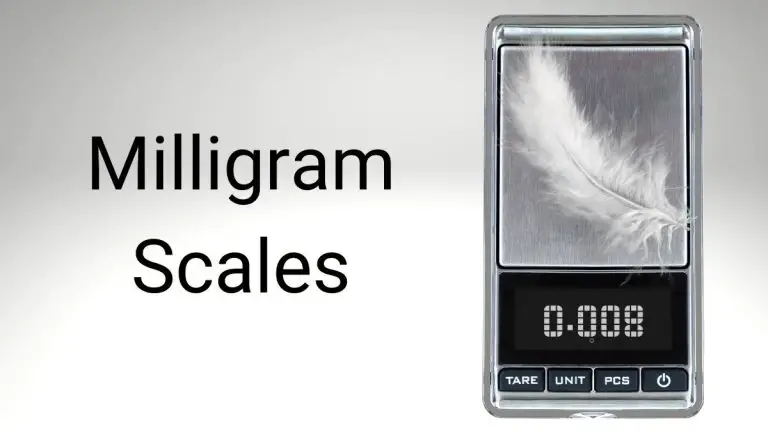What is Accuracy and Precision? A Simple Guide
A question that gets asked a lot is what is the difference between accuracy and precision? I mean they are the same thing, right?
Well not so fast. Let’s start by looking at the definitions of each one.
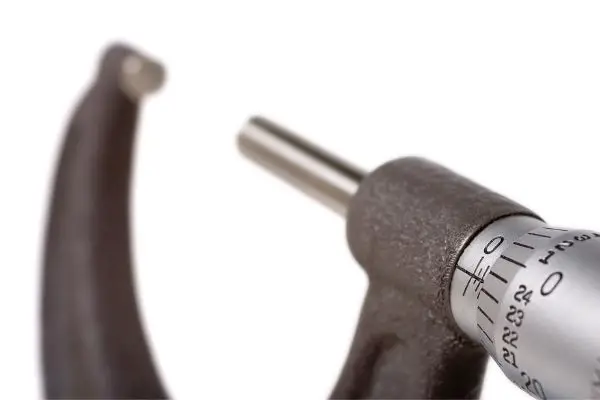
Definition of Precision
The Cambridge University describes precision as “the quality of being exact”.
In more simple words precision is being exact, the more precise you or a machine is the more exact it is in the measurement, answer or action.
For example, a digital scale that measures down to 1 gram is not as precise as a scale that measures to 0.1 of a gram. A digital scale that measures to 0.1 of a gram is 10x more precise than one that only measures down to the gram.
Knowing the precision of a measuring device is very important so that you can make an accurate measurement but you also don’t need something that is too precise.
For example, if you want to measure 100g of mushrooms for dinner there is no point in measuring it down to 0.01 of a gram as this is much too accurate for the requirement.

Definition of Accuracy
Now Accuracy is very similar but also different in a fundamental way. Cambridge University defines accuracy as “the fact of being exact or correct”.
So accuracy is more about being completely right. Hitting the mark perfectly. while this may sound a lot like Precision there is a big difference here.
So how can you tell the difference between Accuracy and Precision?
To explain the difference in a simple way lets think about an old clock. Old clocks are very good at being precise with the exact time. You can see this by knowing that the hands of the clock show you the exact second in time.
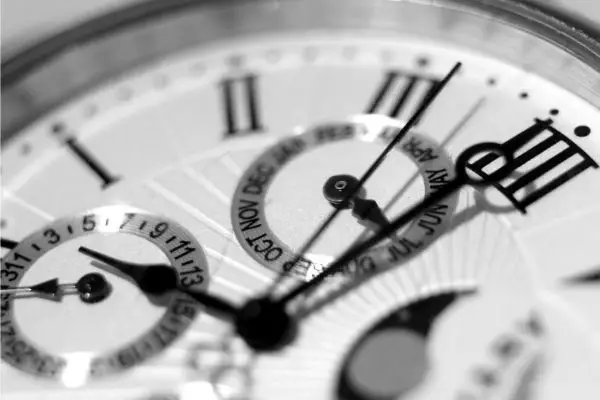
So let us say that you want to know exactly when 12:00 pm is with an old clock you would wait for all the hands to move around to the top position and then when the second hand moved to the last position straight up you would know that exactly at that moment it was 12:00.
This shows us that the clock is very precise but it doesn’t show us that the clock is accurate.
Ok, what do we mean by that, well, what if the clock was running fast by say 20 seconds. Then that very second when all the hands were straight up was not 12:00 at all. It was out be 20 seconds.
This means that even know the clock is very precise to show you exactly when it is 12:00, it is not very Accurate.
It works exactly the same for Digital scales. While they are very precise meaning that they show exact valures of weight and sometimes in very very small increments. This can be very deceptive if the scale is not actually measuring the weight correctly.
Calibrating your scales
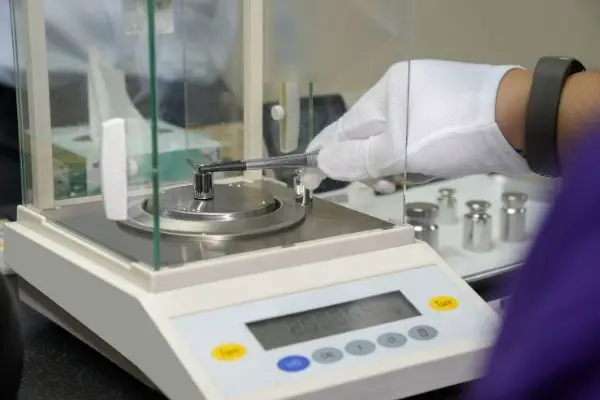
This is why calibration of a digital scales, or at least tare a scale that doesn’t have a calibration function is so important.
When you calibrate a digital scale it sets the scale to some known values, 0 and 1, 2, 3 or more calibration weights after this so that the scale has known set points that it can refer to to get a correct reading.
“The more precise the digital scale is, then more important it is to calibrate it”
A scale is only as precise or accurate as how well it was calibrated. If you use a high precision scale without calibrating it then you will have a very imprecise measurement. It will appear to be very accurate as this is what the machine will tell you but it will be wrong.
I hope you now understand the difference between accuracy and precision. Please have a look at our article on the top digital scales if you are looking for one.

